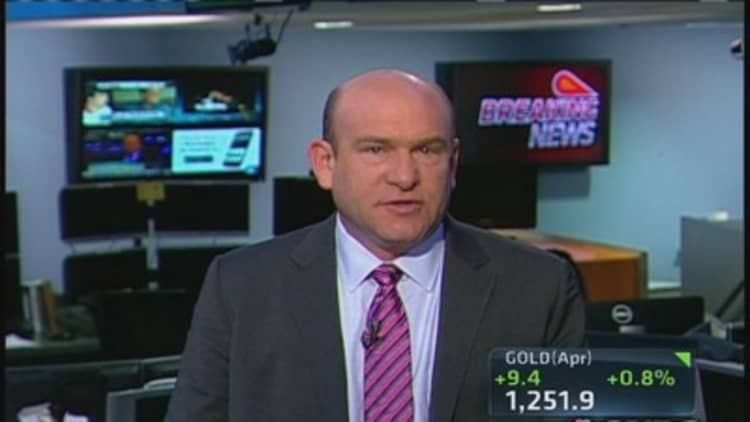
The International Monetary Fund (IMF) has responded to the ongoing volatility in emerging markets by stressing the need for coherent macroeconomic policies and urgent policy action in some countries.
Emerging markets have been hit over the past week amid concerns that growth in the region will slow as the U.S. Federal Reserve tightens its monetary policy, draining global liquidity. A number of emerging market currencies have seen major falls against the dollar, with some central banks forced to raise rates and intervene in the markets to limit the swings.
(Read more: )
"While it is difficult to pinpoint a single trigger for the sell-off, the turbulence underscores the challenging situation that many countries face as a result of tighter external financing conditions, slower growth, and softer commodity prices," the IMF said on Friday.
It added that while many countries had "responded forcefully" to the turbulence, there needed to be coherent policies and good communication between those economies that are affected. In some cases there was a need for "urgent policy action to improve fundamentals and policy credibility," the IMF said.
"The turbulence also underscores the need for vigilance among central banks over liquidity conditions in international capital markets," it added.
(Read more: Emerging market funds lose $9 billion in past week: Data)
The IMF's comments came after the Federal Reserve confirmed on Wednesday that it would scale back its monthly bond-buying program by another $10 billion. The Fed's asset purchases have boosted risk sentiment and riskier assets, including those in emerging markets.
In an interview on Thursday, Bill Rhodes — a key negotiator in the debt restructurings of major developing countries in the 1980s and 1990s — stressed the close link between U.S. monetary policy and emerging markets.
"This (the turmoil in emerging markets) has been a long time coming once the tapering was announced," Rhodes told CNBC.
"All of this action began because the funds had been flowing into emerging markets when we had quantitative easing... Well now you're getting the opposite of that," he said.
(Read more: Emerging market rout 'a long time coming': Rhodes)
In addition, the Reserve Bank of India Governor Rahuram Rajan said the U.S. "should worry" about the effect its policies were having on the rest of the world, according to Reuters on Friday.
However, some emerging market central bankers are less concerned. In a CNBC debate about the future of monetary policy, at Davos, the governor of the Central Bank of Brazil said the winding down of U.S. stimulus was no bad thing.
"The Central Bank of Brazil was one the first to say that the beginning of tapering is a global positive for the global economy, for international trade, and therefore for emerging markets, including Brazil," said Brazil's Alexandre Tombini.


